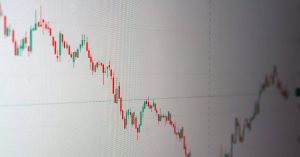Cryptocurrency markets continue to evolve and Dogecoin remains a fascinating digital asset that has captured global attention. What started as a meme-inspired cryptocurrency has transformed into a serious investment option for many traders and enthusiasts seeking potential long-term growth.
By 2030 the landscape of digital currencies could look dramatically different. Investors and market analysts are increasingly interested in understanding Dogecoin’s potential trajectory amid rapidly changing technological and financial ecosystems. While predicting exact prices involves considerable speculation you’ll want to explore multiple factors that could influence Dogecoin’s future value.
Understanding the complex dynamics of cryptocurrency markets requires careful analysis of technological developments market sentiment and broader economic trends. This exploration will help you gain insights into potential scenarios for Dogecoin’s price by 2030 and the key considerations that might shape its investment potential.
Key Takeaways
- Dogecoin’s Potential Range: By 2030, Dogecoin’s price could vary significantly, with projections ranging from $0.10 to $1.50 depending on market conditions and technological developments.
- Community and Technology Drive Value: The cryptocurrency’s future success hinges on continued community engagement, technological innovations, and its ability to maintain relevance in the rapidly evolving digital asset landscape.
- Market Volatility Is Inevitable: Investors should prepare for substantial price fluctuations driven by factors like social media sentiment, celebrity endorsements, and global regulatory changes.
- Competitive Advantage in Transactions: Dogecoin offers notably low transaction costs (around $0.01-$0.05) compared to Bitcoin and Ethereum, which could support its long-term viability.
- Multiple Investment Scenarios: Potential investors should consider three primary price scenarios: bullish ($1.50), conservative ($0.25-$0.50), and bearish (below $0.10), each dependent on complex market dynamics.
- Risk Management Is Critical: Successful Dogecoin investment requires understanding technological competition, regulatory challenges, and the inherent volatility of meme-based cryptocurrencies.
What Is Dogecoin and Its Current Market Position
Dogecoin emerges as a distinctive cryptocurrency that began as an internet meme but has since evolved into a significant digital asset. Its unique trajectory reflects the dynamic nature of cryptocurrency markets and blockchain technology.
Historical Price Performance
Dogecoin launched in 2013 as a satirical cryptocurrency featuring the popular Shiba Inu dog meme. Its price history demonstrates remarkable volatility:
- 2013-2020: Traded at fractions of a cent
- 2021: Experienced explosive growth reaching $0.74
- 2022-2023: Stabilized between $0.05-$0.10
- Notable price surge: Driven by social media influence and celebrity endorsements
Market Capitalization and Adoption
Dogecoin’s market position highlights its growing legitimacy in cryptocurrency ecosystems:
| Metric | Current Status |
|---|---|
| Market Cap | $10-12 billion |
| Global Rank | Top 10 cryptocurrency |
| Daily Trading Volume | $200-500 million |
| Active Wallets | 4.5+ million |
Key adoption factors include:
- Integration with payment platforms
- Support from high-profile investors
- Growing acceptance in online transactions
- Community-driven development
- Consistent blockchain network performance
The cryptocurrency’s resilience stems from its strong community support and continued technological development, positioning it as more than just a meme coin.
Factors Influencing Dogecoin’s Future Price

Dogecoin’s potential value in 2030 depends on multiple complex interconnected factors. The cryptocurrency’s trajectory will be shaped by technological innovations, market dynamics, and external influences that can dramatically impact its price.
Cryptocurrency Market Trends
Global cryptocurrency market trends significantly impact Dogecoin’s potential valuation. Institutional adoption rates, regulatory frameworks, and overall digital asset ecosystem development play crucial roles in determining Dogecoin’s future market positioning:
- Market capitalization shifts
- Cryptocurrency integration in financial systems
- Global regulatory environment changes
- Blockchain technology mainstream acceptance
Key market indicators suggest potential price ranges between $0.25-$1.50 by 2030, contingent on broader cryptocurrency market performance.
Technological Developments
Technological advancements will be critical in Dogecoin’s price evolution. Core technological improvements can enhance transaction speeds, reduce fees, and increase blockchain efficiency:
- Enhanced mining algorithms
- Scalability improvements
- Energy consumption reduction
- Smart contract compatibility
- Network security upgrades
Successful implementation of these technological developments could significantly boost investor confidence and market valuation.
Social Media and Celebrity Influence
Social media sentiment and celebrity endorsements continue to play substantial roles in Dogecoin’s price dynamics:
- Elon Musk’s ongoing cryptocurrency commentary
- Reddit and Twitter community engagement
- Viral marketing potential
- Influencer investment announcements
- Community-driven promotional activities
Sustained positive perception can drive speculative investment and price appreciation.
Potential Price Scenarios for Dogecoin in 2030
Dogecoin’s price trajectory by 2030 depends on multiple complex market factors. Investors can anticipate three distinct scenarios that reflect potential market responses to technological and economic developments.
Bullish Projection
A bullish scenario for Dogecoin could see the cryptocurrency reaching $1.50 by 2030. Factors driving this optimistic projection include:
- Accelerated institutional cryptocurrency adoption
- Expanded blockchain technology integration
- Increased mainstream payment platform acceptance
- Strong community engagement and viral marketing potential
Technological innovations like enhanced network scalability and improved transaction speeds could propel Dogecoin’s valuation. Celebrity endorsements and continued social media momentum might further amplify investor interest.
Conservative Estimate
The conservative price scenario positions Dogecoin between $0.25 and $0.50 by 2030. Key considerations in this projection include:
- Moderate cryptocurrency market growth
- Gradual regulatory framework stabilization
- Consistent but limited technological advancement
- Balanced investor sentiment
This scenario assumes incremental progress without significant breakthrough moments in Dogecoin’s ecosystem.
Bearish Scenario
A bearish projection could see Dogecoin’s value remaining below $0.10 in 2030. Potential limiting factors include:
- Increased regulatory challenges
- Competition from emerging cryptocurrencies
- Reduced community engagement
- Limited technological innovation
- Market saturation of meme-based digital assets
Stringent global cryptocurrency regulations and shifting investor preferences could constrain Dogecoin’s long-term market performance in this scenario.
Investment Considerations and Risks
Investing in Dogecoin by 2030 requires a comprehensive understanding of potential market challenges and uncertainties. This section explores critical factors that could significantly impact your investment strategy and potential returns.
Volatility Factors
Dogecoin’s price volatility stems from multiple interconnected elements. Market sentiment, social media trends, and celebrity endorsements can trigger rapid price fluctuations. Major price swings often occur within 24-48 hour periods, with historical instances showing up to 30% price changes triggered by single tweets or public statements.
Key volatility drivers include:
- Speculative trading patterns
- Community-driven market movements
- Cryptocurrency market sentiment
- Macroeconomic global economic indicators
Regulatory Challenges
Cryptocurrency regulatory landscapes present substantial risks for Dogecoin investors. Global governmental approaches vary significantly, with potential impacts on digital asset trading and valuation. Regulatory actions can emerge from:
- Securities and exchange commissions
- Financial monitoring agencies
- International banking regulations
- Cryptocurrency-specific legislative frameworks
Potential regulatory scenarios range from complete restrictions to progressive integration, each carrying distinct market implications for Dogecoin’s future valuation.
Technological Competition
Emerging blockchain technologies pose significant challenges to Dogecoin’s market positioning. Competing cryptocurrencies with advanced technological features might diminish Dogecoin’s attractiveness. Critical competitive factors include:
- Transaction speed
- Energy efficiency
- Smart contract capabilities
- Scalability infrastructure
- Network security protocols
Technological innovations from alternative cryptocurrencies could potentially challenge Dogecoin’s market relevance, requiring continuous adaptation and community-driven development strategies.
Comparative Analysis With Other Cryptocurrencies
Dogecoin’s performance and potential require careful examination against the broader cryptocurrency landscape. This section explores Dogecoin’s competitive positioning and market dynamics relative to other digital assets.
Bitcoin and Ethereum Comparisons
Dogecoin differentiates itself from Bitcoin and Ethereum through unique market characteristics. While Bitcoin maintains its position as a premier store of value and Ethereum dominates smart contract platforms, Dogecoin presents a distinct investment profile.
Bitcoin’s market capitalization ($500-$700 billion) dwarfs Dogecoin’s ($10-$12 billion), reflecting fundamentally different market perceptions. Ethereum’s technological infrastructure enables complex decentralized applications, whereas Dogecoin focuses on faster, lower-cost transactions.
Key comparative metrics include:
| Cryptocurrency | Market Cap | Transaction Speed | Community Engagement |
|---|---|---|---|
| Bitcoin | $500B+ | 7-10 transactions/sec | Moderate |
| Ethereum | $250-$300B | 15-30 transactions/sec | High |
| Dogecoin | $10-$12B | 33 transactions/sec | Very High |
Transaction costs demonstrate Dogecoin’s competitive advantage:
- Bitcoin: $15-$25 per transaction
- Ethereum: $5-$20 per transaction
- Dogecoin: $0.01-$0.05 per transaction
Meme Coin Market Dynamics
Dogecoin represents a unique subset within cryptocurrency markets: meme coins. Unlike traditional cryptocurrencies, meme coins derive value from community sentiment and viral marketing.
Comparative meme coin metrics reveal Dogecoin’s market leadership:
| Meme Coin | Market Cap | Community Size | Viral Potential |
|---|---|---|---|
| Dogecoin | $10-$12B | 4M+ holders | High |
| Shiba Inu | $5-$7B | 1.2M+ holders | Moderate |
| PEPE | $500M-$1B | 100K+ holders | Emerging |
Dogecoin’s sustained relevance stems from:
- Stronger community engagement
- More extensive exchange listings
- Higher liquidity compared to emerging meme coins
- Consistent media attention
- Celebrity endorsements
Market dynamics suggest Dogecoin’s unique positioning between speculative asset and potential mainstream cryptocurrency, distinguishing it from both traditional cryptocurrencies and emerging meme coins.
Conclusion
Navigating Dogecoin’s potential in 2030 requires a balanced perspective. Your investment strategy should acknowledge the cryptocurrency’s inherent volatility while remaining open to its transformative possibilities.
Remember that predicting exact cryptocurrency values involves significant uncertainty. You’ll want to stay informed about technological advancements market trends and regulatory shifts that could impact Dogecoin’s trajectory.
Successful cryptocurrency investing demands continuous learning and adaptability. By maintaining a strategic approach and understanding the complex dynamics of digital assets you’ll be better positioned to make informed decisions about Dogecoin’s potential role in your investment portfolio.
Frequently Asked Questions
What is Dogecoin?
Dogecoin is a cryptocurrency that originated as a meme in 2013 but has since evolved into a serious digital asset. Created as a humorous alternative to traditional cryptocurrencies, it gained significant popularity through social media and celebrity endorsements, particularly from Elon Musk. Despite its playful origins, Dogecoin has established itself as a legitimate cryptocurrency with a strong community and notable market presence.
How Has Dogecoin’s Price Fluctuated Historically?
Dogecoin experienced dramatic price volatility, peaking at $0.74 in 2021 during the cryptocurrency boom. After this peak, its value stabilized between $0.05 and $0.10 in 2022-2023. These fluctuations reflect the cryptocurrency’s speculative nature, heavily influenced by social media trends, celebrity endorsements, and broader market sentiments. The coin’s price movements demonstrate the significant impact of community engagement and external factors on its valuation.
What Factors Could Influence Dogecoin’s Price by 2030?
Several key factors could impact Dogecoin’s future price, including technological advancements, regulatory frameworks, institutional adoption, and market sentiment. Potential developments in blockchain technology, increased mainstream acceptance, and successful integration with payment platforms could drive value. Conversely, regulatory challenges, competition from other cryptocurrencies, and shifts in investor perception could limit its growth potential.
What Are the Potential Price Scenarios for Dogecoin in 2030?
The article presents three potential price scenarios for Dogecoin by 2030:
- Bullish Projection: Reaching $1.50 with accelerated institutional adoption
- Conservative Estimate: Between $0.25 and $0.50 with gradual market growth
- Bearish Scenario: Remaining below $0.10 due to regulatory challenges
Each scenario depends on various market conditions, technological developments, and global cryptocurrency trends.
How Does Dogecoin Compare to Other Cryptocurrencies?
Dogecoin distinguishes itself with faster transaction speeds and lower costs compared to Bitcoin and Ethereum. While its market cap of $10-12 billion is significantly smaller than Bitcoin’s $500-700 billion, it maintains a strong position in the meme coin market. Its unique community engagement and viral potential set it apart from other cryptocurrencies, positioning it as a distinctive digital asset.
What Risks Should Investors Consider?
Investors should be aware of Dogecoin’s high volatility, driven by speculative trading and social media trends. Regulatory uncertainties, potential technological competition, and the cryptocurrency’s dependence on community sentiment are significant risks. The market’s unpredictability means investments could experience substantial value fluctuations, requiring a thorough understanding of the cryptocurrency landscape.
How Might Technological Developments Impact Dogecoin?
Technological advancements could significantly influence Dogecoin’s future. Improvements in mining algorithms, network scalability, and security could boost investor confidence. The cryptocurrency’s ability to adapt to emerging blockchain technologies and address performance limitations will be crucial in maintaining its market relevance and attracting long-term investment.
What Role Does Community Play in Dogecoin’s Success?
Community engagement is a critical factor in Dogecoin’s success. Unlike traditional cryptocurrencies, Dogecoin’s value is heavily influenced by its passionate and active community. Social media trends, viral marketing, and collective support have historically driven significant price movements. The strength and enthusiasm of its community differentiate Dogecoin from many other digital assets.








